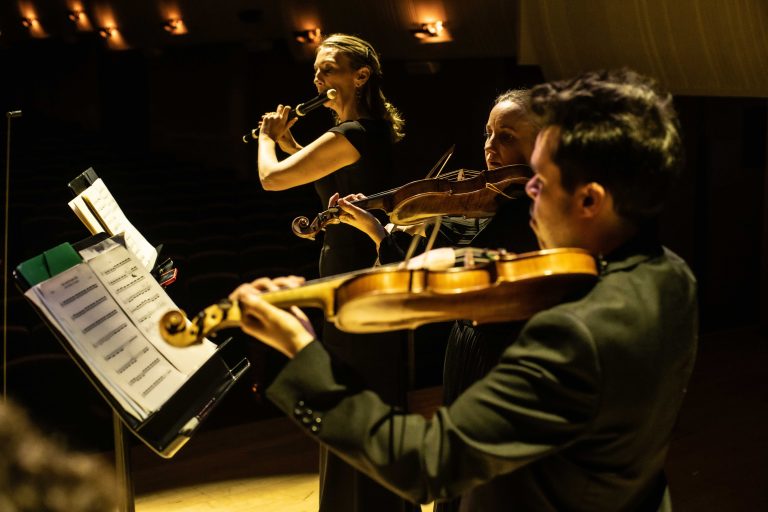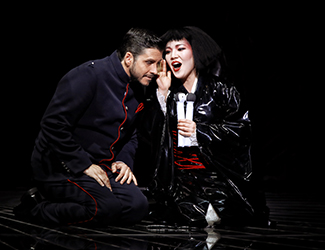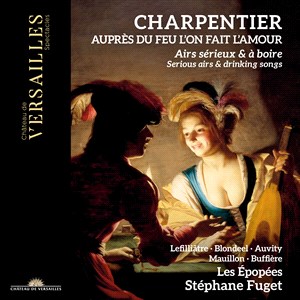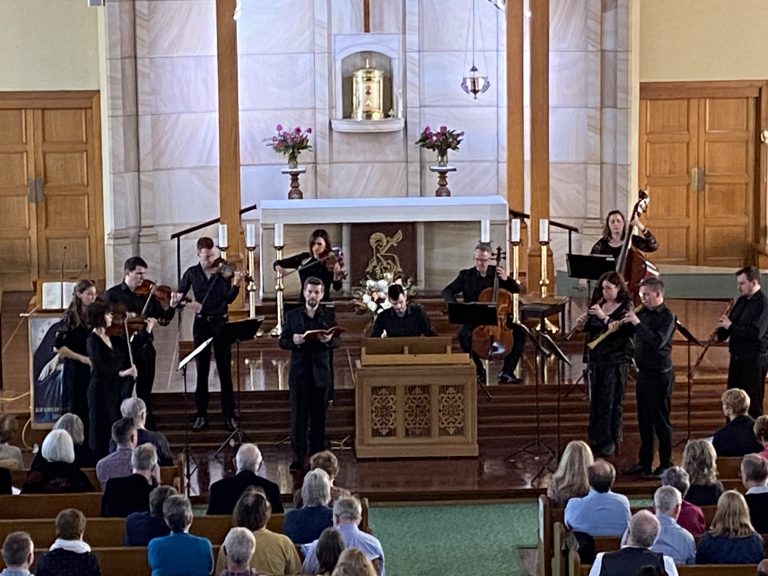Album Review: Bass Instincts/Crossley/Move
Bass Instincts
Alicia Crossley
Move Records
Not a great deal is heard of the bass recorder. It is the hidden family member, the lowest voice in the woodwind recorder consort; the serious, elder statesman, providing the unobtrusive but rock-solid foundation, while the descant recorder grabs the spotlight with its more brilliant and nimble sound. The recorder was barely used in the Classical and Romantic periods, but enjoyed a renaissance in the early music revival of the 20th century and in music education.
Recorder virtuoso Alicia Crossley has turned conventional recorder techniques upside down with her recent album Bass Instincts released on the Move label, and taken the bass recorder into exciting new territory innovating novel sounds from abrasive to mellow and lingering to punctuated. Crossley takes her instrument exploring up and down the diatonic, chromatic and pentatonic scales. With her cutting-edge collaborations she pushes the instrument beyond its conventions.
My research tells me that intrinsic to the bass recorder is a significant delay between tonguing it and the emerging sound – a lag that is not a feature of smaller recorders. The player therefore has to anticipate the tempo and blow slightly ahead of its ensemble partners to avoid losing the beat. Also, the size and shape of the bass recorder make it harder to maintain a sweet and even tone through its range. Achieving this requires skill and experience.
Bass Instincts is a collection of 7 compositions for bass recorder by female Australian composers. On the disc, Crossley is joined by percussionist Joshua Hill. The opening track is Sylvan, a three-movement piece for bass recorder and percussion by Holly Harrison. The bass recorder riffs and wails its way through, first taking up a jazzy duet with the hand drums, then creating a vivid contrast between the short and rhythmic sounds of the marimba and the longer, meandering lines of the recorder.
Fiona Hill’s Lost in the Darkness for bass recorder and live electronics introduces the spoken word and other vocalisations in its depiction in sound of a poem by an asylum seeker, Maryem. Critical to this piece, as the composer explains, is that the “electronic aspect of this work” enables the listener to hear the “often inaudible sounds which enhance the micro-detail of the instrument.”
Alhekulyele by Anne Boyd is for bass recorder and wind chimes. The title is the Indigenous name for Mount Gillen in Mparntwe (Alice Springs) and the piece is a tribute to Arrernte woman Olive Pink (1884 – 1975) who lived there and created a garden on the banks of the River Todd. Wordless chanting accompanies the instruments with the recorder reincarnated as a didgeridoo.
A multi-tracked bass quartet provides the sustained backing for the exquisite and plaintive Inhaltations by Alice Chance, a dance inspired by contrasts, its title a conflation of ‘inhale’ and ‘exaltations.’
Lisa Cheney’s solo for bass recorder Before You is an intensely personal response to parenthood; Amanda Cole uses the pentatonic scale as the basis for her Vibration Meditation for bass recorder and microtonally tuned electronics which “explores vibrations through tuning and timbre.”
Electronics are also the partner of the bass recorder in Jessica Wells’ The Clock, a lively and entertaining multi-metric piece which plays on the idea of time, alternating a joyful cacophony of sounds with the ticking of time-pieces and a lyrical central section.
With Bass Instincts Alicia Crossley showcases the rich possibilities of the bass recorder as a solo instrument. She has taken this medieval instrument hewn from natural materials combined it with the aesthetics of the 21st century and catapulted it into the future.
Shamistha de Soysa for SoundsLikeSydney©






